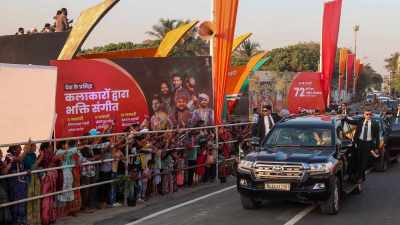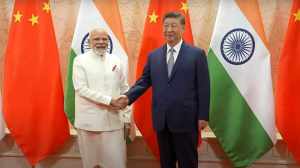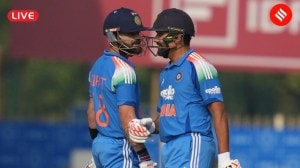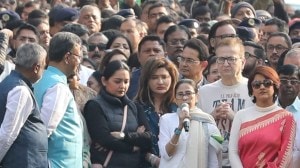Bring Bharat into the discourse
One of the more curious aspects of Verdict 2004 is that so many political analysts, public intellectuals and psephologists got it so wrong. ...

One of the more curious aspects of Verdict 2004 is that so many political analysts, public intellectuals and psephologists got it so wrong. In hindsight, of course, many have pointed out that it8217;s the state of the rural economy that did it. Yet it is odd that hardly anyone from India8217;s vast commentariat had expressed in advance the possibility that India8217;s aam janta would dismiss the BJP8217;s hi-tech media blitzkrieg and, instead, interpret reality on the basis of their lived experience.
What has come to the fore in the past few days is that although the parliamentary system necessitates that Indians balance local, regional and Central imperatives before casting their vote, the majority continues to make election decisions purely on the basis of immediate economic and social concerns. Public intellectuals, in other words, overlooked the extent to which the personal is political in India, and analysts across the board underestimated not only the complexity of locally-based micropolitics but also their interrelatedness to issues at the Centre. Clearly, then, a clinically quantitative analysis of local trends from faraway computer labs doesn8217;t always present the full picture.
Post-May 13, India8217;s cognoscenti have said a lot about the differences between India and Bharat. Still, this nationwide breakdown in understanding the Other India calls for the need to identify and locate issues within a much more participatory epistemological context. In other words, the problem with India8217;s intellectual community is that it talks 8212; and listens 8212; only to itself. But public discourse in India badly needs to be democratised. It needs to be rescued from the clutches of the usual talking heads, so that the average Indian feels welcome to participate more freely in dialogues and debates about the politics that govern his/her life.
Less alien and intimidating methods of communication must be explored so that India listens to Bharat before the latter asserts itself through the ballot. What India needs, actually, is extensive forums where ordinary citizens can voice their concerns and opinions freely. India needs intellectual spaces, as it were, that belong to the public: It needs school and university campuses, community halls, or even local banyan trees as venues for not only free speech but also regular exchanges between both Indias. The urban literati, of course, should be welcome to contribute to such on-going public discussions and serve as intellectual bridges across cultures, but only insofar as their language and ideas are relevant and understandable to all.
Needless to say, this recommendation poses a bit of the chicken-and-egg dilemma, for such community-building exercises cannot exist outside the realm of good local governance. Yet it is only after Indian public discourse becomes more open and inclusive at the micro-level that popular processes by which public opinion is shaped will assume greater agency in the interiors. Put simply, any mass medium of persuasion 8212; such as an ad campaign 8212; will work its magic only on those who feel they8217;re being talked and listened to. Attitudes and values across India will change only when the less fortunate parts of the country cease to be forced into insularity. For more reasons than one, then, forget using the internet, TV, or even SMS for the moment.
Certainly, there are those in power whose political motives run counter to this notion of democracy, and who devote their blood, sweat and money to ensure that channels of communication between the two Indias remain closed, exclusive and obfuscating. But it8217;s time to recognise that Rural India no longer views the exercise of elections as a Hobson8217;s choice: The recent results indicate clearly that they feel sufficiently empowered to overthrow those who neither listen nor learn. It is high time, therefore, for the world8217;s largest democracy to encourage a truly democratic crosstalk amongst its citizens.
- 01
- 02
- 03
- 04
- 05































